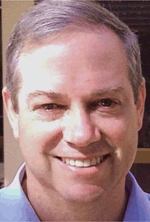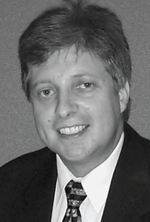Engineering real success using digital technologies
Craig Phasey A B and Steve Ashfield AA Nova Systems, 40 Ross Street, Newstead, Qld 4006, Australia.
B Corresponding author. Email: craig.phasey@novasystems.com
The APPEA Journal 58(2) 586-588 https://doi.org/10.1071/AJ17122
Accepted: 27 February 2018 Published: 28 May 2018
Abstract
The business press is full of articles extolling the benefits of digital transformation. Although no one wants to be left behind, getting caught up in a craze is not attractive either. But oil and gas companies have used digital technologies, such as computers and control systems for years; how is digitalisation different?
The key difference between a company with digital systems and a ‘digital company’ is connection. The former is characterised by disparate, unconnected digital systems, whereas the ‘digital company’ integrates the company’s systems, improving the precision of each. This enables integrated solutions, reducing the potential for counterproductive individual initiatives. Integration enables Big Data and Machine Learning, delivering additional insights. However, integration is not a universal good; as knowledge acquisition has accelerated, so has misinformation. There are better and worse ways to digitalise.
Acknowledgement that digitalisation is the way of the future will not induce change or ensure success. Digitalisation is an alternative method to achieve business goals; it is not the goal. To achieve real success using digital technologies, first a significant need must be identified. The root cause of the major business problems must be discovered before appropriate digital technologies to address those problems are selected. The challenge must be led and supported at the C-suite and the solutions must have enterprise-wide impact. Systems engineering digitalisation creates value through a set of initiatives rather than single-point optimisation. Selection of a suitable scalable digital backbone is a key element of successful implementation.
Keywords: artificial intelligence (AI), Big Data, change management, digitalisation, Machine Learning, supervisory control and data acquisition (SCADA), transformation.

Craig Phasey is a Senior Consultant with Nova Systems. With base qualifications in physics and maths, Craig has over 20 years’ experience in Air Force Intelligence. Throughout his career, Craig has provided operational and strategic advice to senior military commanders, government ministers and cabinet, as well as to heads of major industrial corporations. He has specialised in creating workable solutions to intractable problems. Since leaving defence, Craig worked on technologies ranging from submarines and trains to satellites and communications, consulting to the defence, rail, electricity, waste, and oil and gas industries. Between 2013 and 2016, Craig returned to government as Executive Director, Queensland Government Air, a position in which he formed a single aviation organisation in support of the Queensland Government. In early 2017, Craig was part of a team tasked to find a solution to the electricity cost fluctuations facing coal seam gas production in Queensland. He has subsequently applied this same level of analytical thought to the challenges facing digital transformation in oil and gas. |

Steve Ashfield has 30 years’ experience as a systems engineer with a postgraduate Master’s degree in complex project leadership. He has worked primarily in defence and aerospace and, for the past decade, has worked to apply systems engineering in information and communications technology (ICT), power, water, rail, mining and, most recently, in the oil and gas sector. As a postgraduate, Steve was trained in systems and software integration at Rockwell International USA. He worked for Boeing for 16 years in aerospace support and in 2002 was awarded as an Associate Technical Fellow of the Boeing Company in the field of systems integration. Steve went on to develop a technology program for Boeing Australia and, in 2005, assumed the role of Technology Program Manager, also covering innovation. At Nova Systems since 2010, Steve’s job description is literally ‘to take Systems Engineering into new, non-defence areas’. In doing this he works across all programs under integrated solutions to develop and apply advanced systems engineering practices, including their application to asset management. Currently, Steve is working with truly complex problems in asset management as clients address the novel challenge to remain resilient and competitive on a global stage with ongoing downward pressure on energy and utilities prices. In particular, his work in oil and gas is drawing on complex problem-solving techniques, as well as integrating new technologies, including Machine Learning, data analytics and augmented reality. |
References
Moore, G. A. (1991). ‘Crossing the Chasm: Marketing and Selling High-Tech Products to Mainstream Customers.’ (Harper Business: New York, NJ.)Gartner (2017) Top Trends in the Gartner Hype Cycle for Emerging Technologies, 2017. Kasey Panetta, 15 August 2017. Available at: https://www.gartner.com/smarterwithgartner/top-trends-in-the-gartner-hype-cycle-for-emerging-technologies-2017/ [verified 19 March 2018].1


